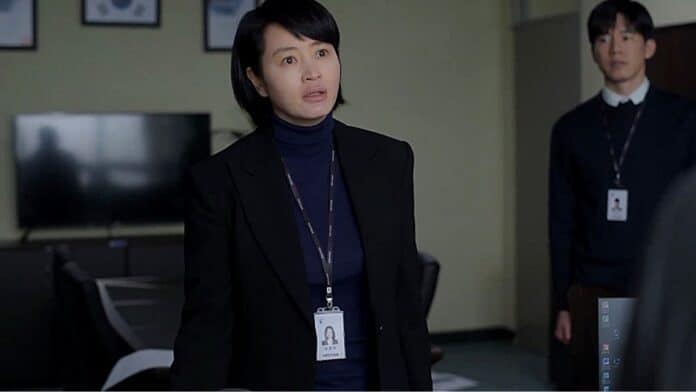Rating: 3/5
Juvenile Justice traces the story of a cold, reserved judge and follows her as she is appointed at a juvenile court in the Yeonhwa District, much to her dismay. The drama series is now streaming on Netflix.
Story
After earning the name ‘Judge Max’, Shim Eun-Seok is a judge who strives to get her criminals the maximum punishment possible. The story begins when she gets appointed at a juvenile court in Yeonwha- thus begin the hoards of cases that come to her and her corresponding judgements.
She comes across Cha Tae-Joo, her co-worker, who is completely poles apart from her- whether it’s personality or temperament. Together, this competent pair handles juvenile cases that involve teenagers. She has another senior colleague- Judge Kang, but he seems to be more interested in his political career.
Meanwhile, we see a crowd of protestors protesting against the juvenile laws for not being strict enough- therefore encouraging the surge in juvenile crimes. This acts as a flammant for Eun-Seok’s resentment against teenage criminals.
From getting justice to the mother of an 8-year old victim to unravelling a whole trap of a gang that targets young girls, she gets touched by her haunting past that has made her so.
The pair- Tae-Ju and Eun-Seok- continue to diligently solve juvenile cases spread all over Yeonwha District- where the teenagers are the preparators, and sometimes- victims.
Performances
Kim Hye-soo as Eun-Seok played a cold, distant character with no mercy for the teen criminals. She did justice to her role while playing someone unlikeable, with her steely gaze. The first hints of emotions that she displayed were so eagerly consumed by the viewers.
Kim Moo-yeol portrayed Tae-Ju with a ‘good cop persona’ while giving a positive warmth to the audience. His chemistry with Hye-soo was worth applauding, as he supported her character well.
Lee Sung-min as Judge Kang played a morally grey character, with shades of black, white and a little bit of grey.
The younger cast- comprising Lee Yeon, Yum Hye-ran, Shim Dal-gi, Jung Yi-Ju, etc- carried the show, with their mature acting as mere teenagers capable of committing heinous crimes.
Positives
The series ‘Juvenile Justice’ keeps the viewers hooked as we wondered- why is ‘Judge Max’ like the way she is?
The way each case is entirely different from the previous one- gives a sense of fresh relief to the audience. The ‘anecdotal’ style of the series makes it a very easy binge.
Along with unpredictable twists, there is a moral message in each case, asking its audience the important question- what are people capable of?
The writers did a good job in character building- especially ‘Judge Max’ (Eun-Seok) who stands on the same ideology but with a different motive and attitude at the end.
Negatives
It seemed a bit unrealistic that Eun-Seok was a judge ‘so’ deeply dedicated to solving cases. It could have been better if she was a prosecutor or a detective, as judges are usually involved in passing verdicts- not collecting evidence.
The series gets too fast in the second half the cases that had no connections at first, start doing so. It looks like a shabby attempt by the writers to finish off the plot.
This series probably gives us unpredictable twists, but they aren’t meaningful to the plot. For example, Do-Seok did not have to be the one caught with a stolen ID, only to be rendered in a vegetative state for the rest of the series.
Verdict
‘Juvenile Justice’ started as a good attempt at the controversial ‘Juvenile Act’, that aims to improve the lives of young criminals but somehow fails as it allows them to get off scot-free. The plot stayed right on the trail, only disturbed by some ‘unwanted’ twists that weren’t necessary.
Also Read: Juvenile Justice (2022) summary and ending explained

